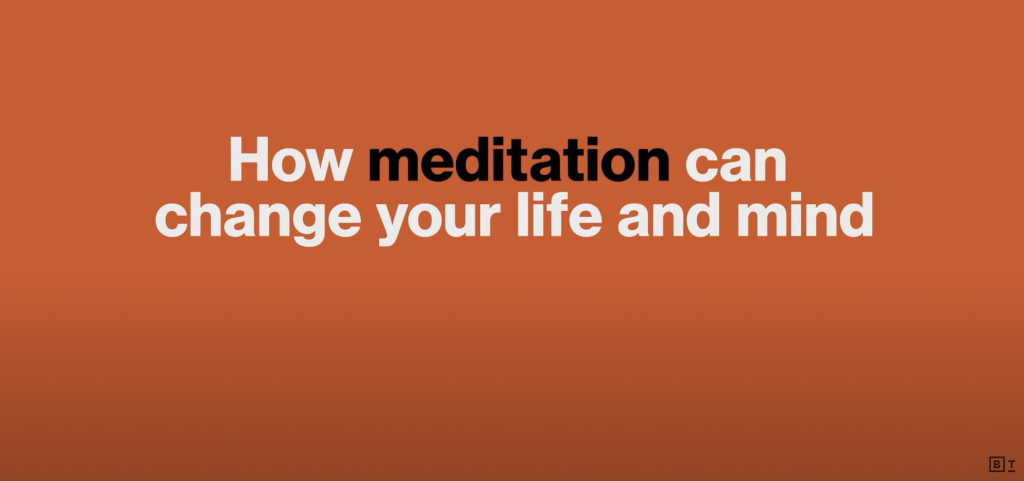
Mindfulness Check-in to Boost Your Mood
During the holiday seasons there can be feelings that you ‘should’ be feeling one way or the other way; because it is a holiday perhaps

Mindfulness and its practice can be hard to describe. For many it conjures up images of monks sitting in a monastery meditating, for others it is merely a way to relax. This great video ‘How meditation can change your life and mind’ from the Big Think talks a bit about what mindfulness is and isn’t and shows the growing base of scientific research demonstrating its benefits. Below are four misconceptions and three truths about mindfulness.
Not true. Mindfulness practice is an active process which can help you to develop your capabilities of focus and attention. It allows you to zoom in and out purposefully at the various experiences of your life which in turn allows you to develop skills of allowing and letting be. Rather than getting rid of your thoughts, it allows you to acknowledge them and relate to them in a different, more positive way.
From this perspective the ‘aim’ of mindfulness practice is to help us to stay in the present moment. According to research almost 50% of the time we are in ‘automatic pilot’, not really conscious of what we’re doing right in front of us. By bringing your attention to the present moment we can be more productive, feel happier and more fulfilled with our lives.
For another perspective on mindfulness practice, read our article: What is Mindfulness Practice.
True. Because the practice is about maintaining your attention of the present moment; noticing when your mind is wandering and then coming back, it is a ‘fantastic way to train your mind.’ As Emma Seppälä mentions. A significant part of the practice is noticing that your mind has wandered and then gently and kindly bringing yourself back to what you are attending to at the moment – be this observing the breath, your thoughts, emotions or some other experience. Many practitioners will criticize themselves for their mind wandering; believing that they have not met some standard. However, the mind wandering is the opportunity for you to get better. It is a fantastic way to train your mind.
Not true. However, the practice is not just about paying attention. The practice also helps you to cultivate attitudes of kindness and compassion are . Why should we do this? Because as Longsang Samten points out, ‘One mental good quality leads into the next’. All the religious meditative literature points to being less selfish and not just thinking about our own needs as being a source of happiness. So, mindfulness is not just about paying attention; that greater understanding of yourself enables you to become more empathetic, giving your greater capacities to serve others which ultimately contributes to your own sense of well-being.
True. The practice can help you to find your true self – the self of pure awareness. Once you have begun to get into the practice of observing your experience, the ‘concept’ of you who you are – the thoughts and emotions that you might have about yourself – begin to drop away. You begin to see them for what they are, passing experiences and concepts. What remains is the recognition of yourself as awareness. From this position of awareness ‘you will be in wiser relationship to your possibilities’; you will be able to respond more skillfully to the experiences with which you are faced, you will be able to act with greater intention rather than reactively.
Not true. As Jon Kabat-Zinn says, “All you’ll get by trying to get rid of your thoughts is a headache”. Rather than getting rid of your thoughts, the practice allows you to acknowledge them and relate to them in a different, more positive way. The practice is to observe your experience which includes your body sensations, your emotions and yes your thoughts. This allows you to ‘stand back’ from the experience and not get absorbed by it. As you do this, you will witness the natural coming and going of these thoughts, emotions and sensations. But you are not trying to get rid of them.
Daniel Goleman provides an example. By observing and acknowledging when you’re depressed, you can shift the activity levels of the brain from the depressed state to the part that observes and notices (the prefrontal cortex) and this diminishes the depression enabling us to relate to it differently and understand it.
True. Meditators can turn off the default network mode of their brain while they are meditating. This is the area that is responsible for worry. They can do this when they are meditating and when they are not meditating. The new default mode is focusing on what they are doing right now. Long term meditators can change the electro-physiological responses of their brains.
Mindfulness practice can also boost your immune system, lower your blood pressure, help you deal with medical conditions ranging from irritable bowel syndrome to psoriasis. Short daily doses of meditation can grow grey matter in key areas of your brain related to self-awareness and compassion and shrink the grey matter in the areas related to stress.
Not true. In the multitasking environment that we live in our attention is being drawn away from what we are doing on a regular basis – we’re constantly checking for emails, instagram or facebook. As Daniel Goleman says ‘Focused attention is an endangered species’. By just doing mindfulness practice for ten minutes a day we can begin to claw this attention back and increase our capacity to pay attention.
Beginners to mindfulness can gain immediate benefits. The amygdala is quieter and calmer in the face of stress. And this is a benefit which appears right from the beginning.
Start small. Trying to force your self to do long sits at the beginning will not work. What will work is if you enjoy the practice and see its benefits in your life. This will motivate you to come back. Another thing you can do is bring to mind something that is important in your life which greater mindfulness would help you with. This may be, for example, to reduce stress at work, or, to learn how to listen more closely to loved ones, to be a better friend by being more empathetic, or just being more clear in what you really want on a moment to moment basis. Connecting your practice with something important in your life will motivate you; it is also a practice in itself.
Start small by trying out our practice, The Three Step Breathing Space.
Or when you’re ready, you can learn the fundamentals of mindfulness practice in our eight week Mindfulness For Life programme which has been developed by the Oxford Mindfulness Centre.

During the holiday seasons there can be feelings that you ‘should’ be feeling one way or the other way; because it is a holiday perhaps

On the one hand social media has many positives; it can connect us and provide us with digital communities. On the other (dark side) it

So, how do you find your passion? A question that I’ve been asked and that I have asked myself quite often. The question has a

A recent interview about my experience of mindfulness practice to introduce my mindfulness journey and to show that you are not alone in the challenges